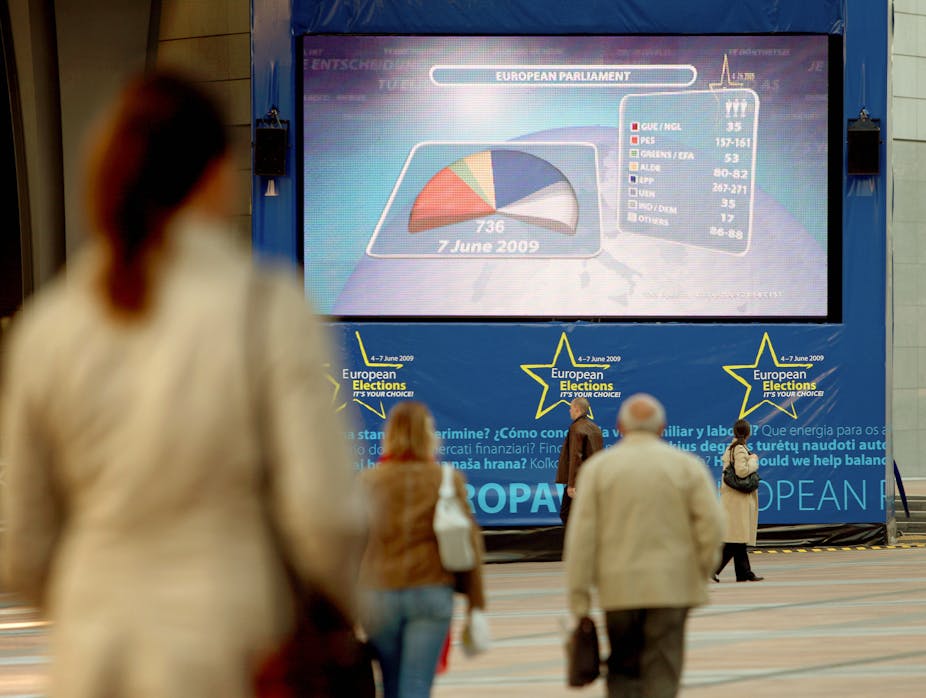Both from the outside and the inside, Belgium is often perceived as a pioneer of the European Union. Locked between France and Germany, the open economy of the country benefits largely from common rules at the EU level. And as Belgian neutrality failed in two world wars, people are very keen on the security that the EU provides. As repeatedly shown by Eurobarometer surveys, Belgians tend to support the EU with a score above the EU mean.
From time to time however – and despite this tendency to support membership of the EU – Europe can turn into a political issue. And, while most political parties are generally favourable, differences between them deserve nonetheless to be highlighted. How to understand for instance the Greens’ refusal of the Treaty on Stability, Coordination and Governance? Did they reject it for the same reasons as the Vlaams Belang far-right party?
It’s instructive to divide the debate of Europe in Belgium into three distinct parts.

Shared values
Firstly, although not very salient, a controversy exists between mainstream parties and some fringe parties about what should be the founding values of European identity. Among parties represented at the EU level, while mainstream parties support a definition based on broad liberal values, the Dutch-speaking populist List Dedecker (LDD) and the far-right Flemish Interest/Vlaams_Belang (VB) parties defend culturally exclusive criteria. In this respect, their position on Turkish accession(LDD) is particularly revealing.

Secondly, the gap widens among parties when looking at positions regarding the institutional framework of the EU. Except LDD and VB, all the parties accept more shared sovereignty at the EU level. However, liberal parties, Open VLD and Reformist Movement (MR), Green parties, Confederated Ecologists (Ecolo) and Groen, and the Flemish regionalist New Flemish Alliance (N-VA) are more likely to support direct procedures of decision-making at the EU level than the French-speaking Parti Socialists (PS) and its Flemish counterpart, Socialistische Partij Anders (SP.a) or christian democrat parties the Flemish Christen-Democratisch en Vlaams (CD&V) and the French-speaking Centre Démocrate Humaniste (cdH).
Finally, no common ground can be found on public policies decided at the EU level. While left/right orientations largely frame the debate in general, not all the issues can be reduced to such an axis. This is the case with the Common Agricultural Policy and the liberalisation of trade in services, for instance.
Europhile tendencies
Beyond controversies, it is worth noting that some issues are more likely to generate consensus among parties than others, for example the Common Security and Defence Policy. With few exceptions, it is also the case when it comes to strengthening of the European Parliament’s powers and reducing unanimity voting procedures. Taken together, these positions constitute a baseline which contributes to the Europhile reputation of the country.
More recently, the European debate in Belgium has been primarily oriented towards governance at the EU level, and, as a result of the ongoing crisis, socio-economic issues. But the consensus around European issues in general tends to reduce the temperature of debate on the Belgian political landscape – and the fact that, for the first time, federal, regional and European elections will be contested on the same day makes the European parliamentary elections less visible to most people.
It is often said about European integration that the debate is between “Eurosceptics” on the one hand, and “Europhiles” on the other. In Belgium this hides important nuances over the degree of integration rather than the issue of membership. Nowadays, the EU has become a multi-layered reality where decisions are taken based on common denominators. Such a system does not allow dualism.
When discussing Europe, in Belgium as anywhere else, moderation is often required.

